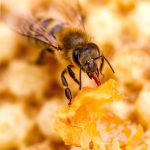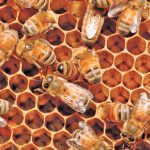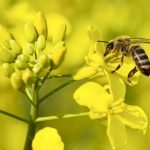
Tag Archives Bees

Control slipping on varroa mites
Anecdotal and small scale studies continue to suggest that a leading varroa mite control product may no longer be enough

Comment: Honeybee lifespan could be half what it was 50 years ago: study
A number of factors are likely contributing to this perceived decline

Manitoba honey harvest falls short
Last winter’s bee losses come due in honey counts

Another bad season for bees
Experts explore the reasons for bee population declines -- and ways to mitigate the problem

Expanding markets for Manitoba honey
Upgrades slated to Manitoba honey production and packaging facilities

Drought sets stage on bee losses, mite issues
The 2021 drought is the unwanted gift that keeps giving

Beekeepers to take second look at U.S. bees amid heavy loss
Many hives are still in the snow, but early loss counts are alarming

VIDEO: Beekeepers opt for closed border on U.S. bulk bees
Bulk bee imports from the U.S. have been closed for decades, and Manitoba’s beekeepers say they would like it to stay that way

Pollinators key to canola crops’ success
Your busy little unpaid employees make it all possible

Funding boosts beekeeping extension
The Manitoba Beekeepers’ Association extension and research program has another $20,000 for the coming year


